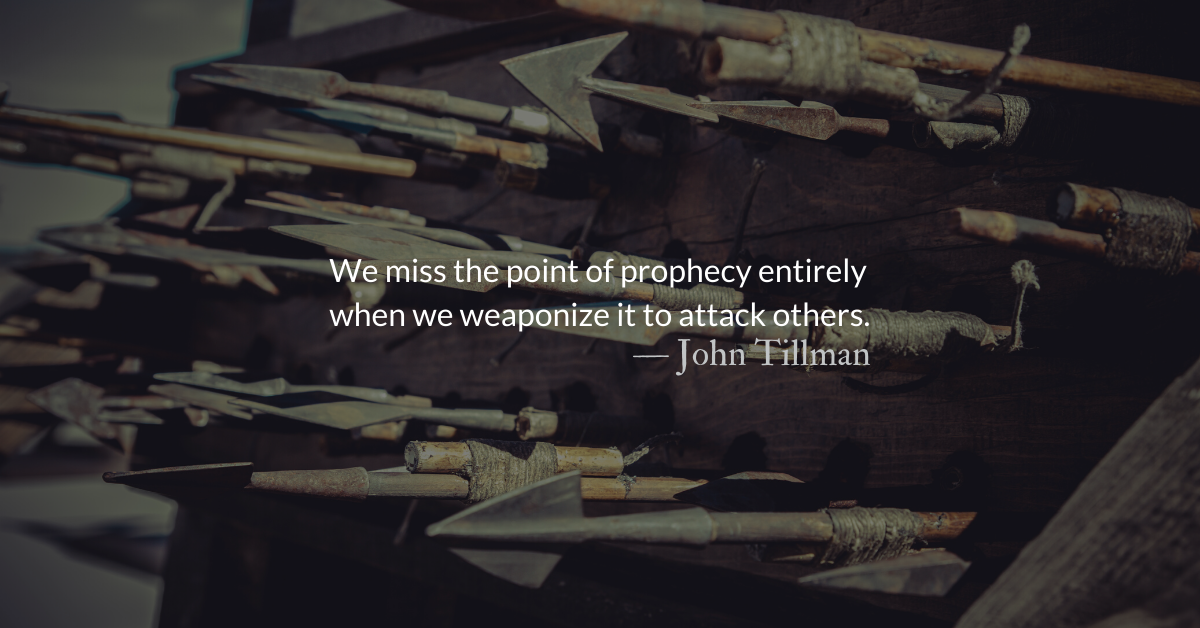Scripture Focus: Isaiah 30.10-11
10 They say to the seers,
“See no more visions!”
and to the prophets,
“Give us no more visions of what is right!
Tell us pleasant things,
prophesy illusions.
11 Leave this way,
get off this path,
and stop confronting us
with the Holy One of Israel!”
Reflection: Prophets in Our Path
By John Tillman
Isaiah describes a caravan in the Negev desert. They carry valuables and gifts of honor through dangerous territory, filled with lions and snakes. They are envoys from Judah sent down to Egypt to seek protection.
It is an interesting reversal. Israel left Egypt, carrying away Egyptian gold and treasures as they were liberated from slavery. Now, here they are, crawling back through the desert to seek audience with their former abusers.
Why are they returning treasure and pledging fealty to their former captors? Why are they begging for “the shade” of Egypt when God promised they would sit under their own vine and fig tree? Why are they becoming like the grumbling Israelites in the desert who said, “Wouldn’t it be better to go back to Egypt?” (Numbers 14.3-4)
Then, like Balaam on the way to curse Israel, these envoys are confronted and warned. A prophet stands in their path with a message from God. But they brush off the warning and tell the prophet to get out of their way and stop confronting them.
These envoys wanted sweet verses from prophets. But prophecy is often ugly. They longed to hear comforting promises. But prophecy is often disturbing. They sought convenient confirmations of what they already believed. But prophecy often holds inconvenient truths.
How like these envoys are we? How easily do we seek bargains from worldly powers and shelter from our enslavers? How often do we seek prophets to confirm our decisions rather than confront us with truth?
Let us repent:
When an inconvenient prophecy stops us in our tracks…
When an ugly truth comes to light…
When we are caught holding a check written to evil forces of this world, asking their protection…
Don’t push past prophets in your path lest this verse be about you: “the Holy One of Israel, says: ‘In repentance and rest is your salvation…but you would have none of it.” (Isaiah 30.15)
Let us have the salvation that God longs to give us. Let us listen to prophets in our path.
“…the Lord longs to be gracious to you;
therefore he will rise up to show you compassion.
For the Lord is a God of justice.
Blessed are all who wait for him!
People of Zion, who live in Jerusalem, you will weep no more. How gracious he will be when you cry for help! As soon as he hears, he will answer you. — (Isaiah 30.18-19)
Divine Hours Prayer: The Greeting
All your world praise you, O Lord, and your faithful servants bless you.
They make known the glory of your kingdom and speak of your power;
That the peoples may know of your power and the glorious splendor of your kingdom. — Psalm 145.10-12
– From The Divine Hours: Prayers for Summertime by Phyllis Tickle.
Today’s Readings
Isaiah 30 (Listen 5:52)
Acts 17 (Listen 5:28)
Read more about Today’s Roots, Tomorrow’s Fruit
Prophecies can tell of coming salvation or warn of coming disaster. There’s no question which we prefer to listen to.
Read The Bible With Us
Invite friends to join our Bible reading plan. Read together with us at a sustainable, two-year pace.









